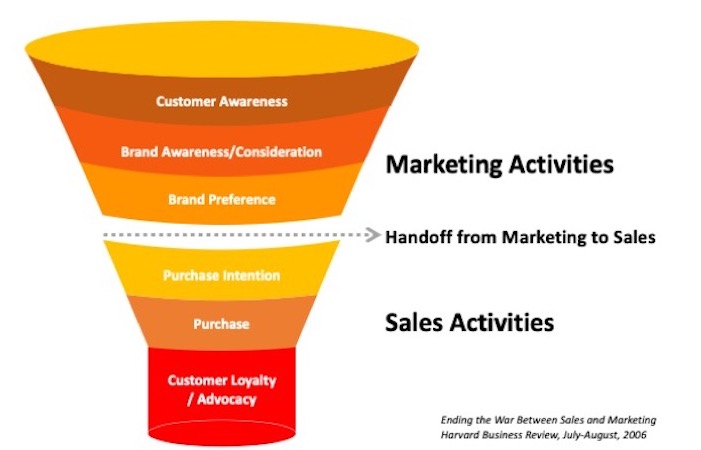
Many distributors struggle when trying to figure out how to create a marketing budget. They're just not sure what they'll need or what it will cost. If you read my previous blog post, you’re familiar with the initial first steps to focus on. In this article, we'll dive into some more substantial options to consider so that you can better estimate what you'll need to be successful.
The Essentials (don't let my brevity fool you - these are a big deal!)
Before you begin creating a budget that ensures a return on your investment, let’s address the initial steps.
First, start by setting your annual sales goals; you can break this down into quarterly goals if that’s helpful.
Then, look to emphasize your positioning within the marketplace. You can do this by understanding your target audience, your competition, and deciding where you'd like to insert yourself into the equation. (This is key if you want to stay in business past tomorrow!)
Once these initial steps are taken care of, you will outline the plans for your sales and marketing strategies. Create a tactical sales plan, and define your primary marketing strategies. Having these plans in place will help tremendously in creating your marketing budget.
From this point, you may consider investing in new resources, which takes us to the following.
Should You Even Bother With Marketing?
Most distributors have what I consider to be an old-fashioned view of marketing. Many feel marketing brings no measurable value, and marketing programs are often the first to go during budget cuts. The simple reason behind these views is that distribution is traditionally a face-to-face sales-driven business built on personal relationships between their salespeople and their customers.
Marketing is often considered a 'nice-to-have' vs. a 'must-have.'
But, what if I tell you that a Marketing Plan is a must have? And, what if I tell you that your Marketing Plan should generate revenue for you and NOT be a cost center? And, it can all be measured and tie directly to your ROI.
You see, things have changed over the years. It's not just that face-to-face sales and customer contact have been dwindling, and that the COVID-19 crisis has severely propelled that deficit. Salespeople have been struggling for leads for a while now, although more now than ever before.
How is that related to marketing, though?
Glad you asked! Simultaneously, technology has done tremendous things in what's called the "digital marketing" arena, but these technologies tie directly to your sales function. In fact, technology has made it so that these digital marketing tools, when used correctly, are entirely focused on supporting the sales teams by 1) better segmenting and targeting audiences, 2) capturing and nurturing leads, and 3) speeding up the sales cycle.
Do Your Research -- Make Educated Decisions
With that in mind, you have a decision to make concerning how your company handles your digital sales and marketing functions. Should you delegate your digital sales and marketing functions to an expert whose sole focus is on ensuring nothing is left to chance? Could a seasoned consultant help steer you in the right direction?
If so, an experienced consultant can help. Be sure, however, that you do your research before enlisting a consultant; these people will play an essential role in reaching your marketing goals, but more importantly, what they do will affect your sales as well. The right marketing expert will do things you might not ordinarily think to do or might not have time to do.
For example, they will be instrumental in identifying and then connecting you with your target audiences. They should also be qualified enough to create strategies that increase your online presence and elevate you to a platform where customers knock on your door.
The company you choose should also offer tactical assistance, which can be especially helpful as you hand off creative tasks to people who have years of experience understanding the psychology behind capturing consumers’ attention.
Ideally, you want to find a company that can oversee and implement these advanced tasks so that they do not disrupt your business's culture and style and the relationships you've built over the years, but rather add longevity to the situation.
Quite possibly, your existing marketing team can eventually then learn these new tactics and strategies from people in the know instead of struggling with systems and processes they're not yet familiar with.
Automation Software
Today you have access to affordable and reliable automation software, and now is the perfect time to start exploring marketing automation for your business.
Because these programs have become exponentially more advanced, proficient, and affordable, it's easy to find the programs that offer packages that conform to any company’s budget.
Today, all marketing software will include programs that perform the basics, such as social media auto-posting and automated email newsletters. The more advanced programs will also provide tools to support your sales function with features such as lead management, sales management dashboards, and analytics. The best also includes robust tracking and retargeting.
It may sound overwhelming, so be sure to start slowly by focusing on your business's immediate needs, and again, don't hesitate to call on the experts for assistance and advice. Walk before you run, and take the time to research these tools thoroughly.
Everything is Measurable and Ties Back to Your ROI
The most important thing to keep in mind while creating your marketing budget is that everything is measurable today.
In the past, almost all distribution companies underspent on their marketing efforts because they could not measure or show any ROI. That's no longer the case!
Today it's easy to tie back the number of prospects gained and the value of sales created directly to marketing dollars spent.
For example, suppose you decide to invest $10K each month on your digital sales and marketing endeavors. You'll then easily see month-to-month throughout the process what your return on that investment is.
You'll also have a clear picture of which marketing efforts lent themselves to more significant sales and which did not. This knowledge will make it easy to do more of what works, less of what doesn't, and create an expected ROI that ties back to your marketing budget.
Let’s do this … Together!
Rather than struggle alone with decisions about what to change, where to invest, and what will work, bring in a team to support you. Together, we will discover the answers you need and teach you and your team to do it on your own. Our goal is to work ourselves out of a job so you can be self-sufficient!
Now is the time to take charge of your company's marketing efforts. I can help. Just give me a call and let's discuss the best options for moving forward.
We'll define metrics, set goals, and measure KPIs going forward. You'll watch Marketing transform into a revenue-generating department that you can tie directly to a positive impact on your bottom line.







